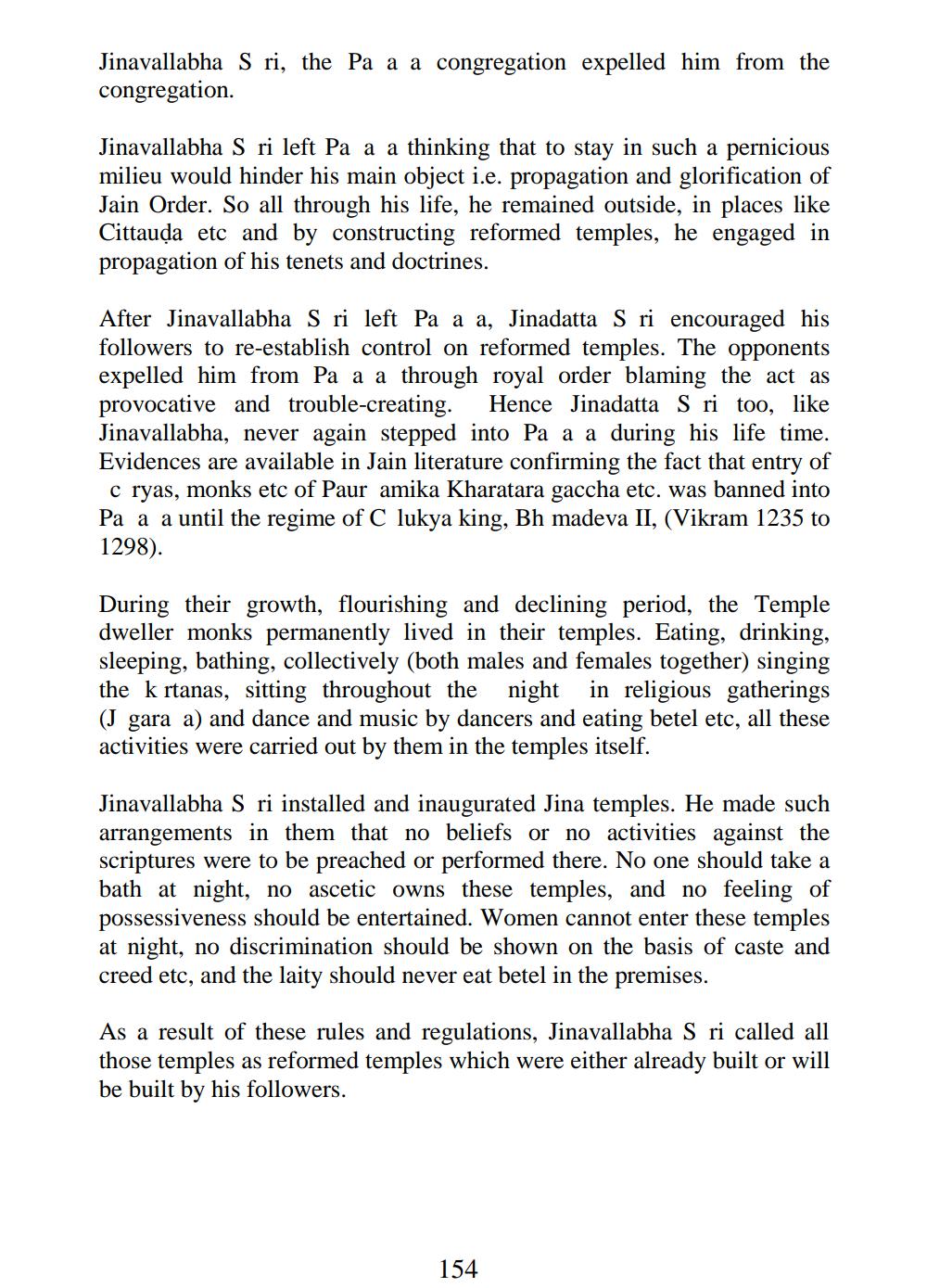________________
Jinavallabha S ri, the Pa a a congregation expelled him congregation.
from
the
Jinavallabha S ri left Pa a a thinking that to stay in such a pernicious milieu would hinder his main object i.e. propagation and glorification of Jain Order. So all through his life, he remained outside, in places like Cittauda etc and by constructing reformed temples, he engaged in propagation of his tenets and doctrines.
After Jinavallabha Sri left Pa a a, Jinadatta Sri encouraged his followers to re-establish control on reformed temples. The opponents expelled him from Pa a a through royal order blaming the act as provocative and trouble-creating. Hence Jinadatta S ri too, like Jinavallabha, never again stepped into Pa a a during his life time. Evidences are available in Jain literature confirming the fact that entry of
c ryas, monks etc of Paur amika Kharatara gaccha etc. was banned into Pa a a until the regime of C lukya king, Bh madeva II, (Vikram 1235 to 1298).
During their growth, flourishing and declining period, the Temple dweller monks permanently lived in their temples. Eating, drinking, sleeping, bathing, collectively (both males and females together) singing the k rtanas, sitting throughout the night in religious gatherings (J gara a) and dance and music by dancers and eating betel etc, all th activities were carried out by them in the temples itself.
Jinavallabha Sri installed and inaugurated Jina temples. He made such arrangements in them that no beliefs or no activities against the scriptures were to be preached or performed there. No one should take a bath at night, no ascetic owns these temples, and no feeling of possessiveness should be entertained. Women cannot enter these temples at night, no discrimination should be shown on the basis of caste and creed etc, and the laity should never eat betel in the premises.
As a result of these rules and regulations, Jinavallabha S ri called all those temples as reformed temples which were either already built or will be built by his followers.
154




